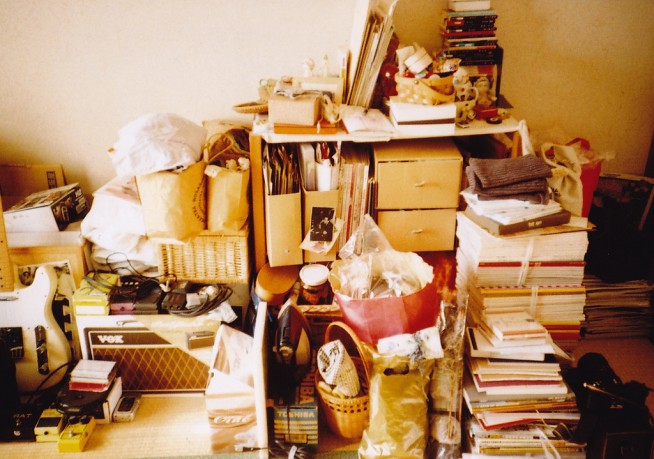One of the things about happiness that continually surprises me is the degree to which, for most people, outer order contributes to inner calm, and inner self-command.
In the context of a happy life, a crowded coat closet or an overflowing in-box is trivial, and yet such things weigh us down more than they should.
That’s why I follow habits like making my bed and the one-minute rule, and why one of the most important strategies of habit formation is the Strategy of Foundation.
Because I’m so interested in the connections among clutter, order, energy, habits, and happiness, I had to read Marie Kondo’s blockbuster bestseller, The Life-Changing Magic of Tidying Up.
It was interesting for many reasons, but a few things struck me in particular.
For one thing, Kondo pointed out that advice for clearing clutter very often takes the form of “Start off slowly and discard just one item a day.”
This sounds very practical and sensible. However, she comments,
“I am not the kind of person who likes to plug away at something, one step at a time. For people like me, who do their assignments on the very last day right before the deadline, this approach just doesn’t work.”
In Better Than Before, my book about habits, I make a similar point. While taking small, gradual steps works well for many people, it’s also true that some people do better when they take giant steps. Sometimes, counter-intuitively, it’s easier to make a major change than a small change. Both strategies can be effective — as always, the key is to know what works for you. Ask yourself,“Do I prefer to aim big or aim small?”
Also, some people (like me, for instance) are Marathoners, and some people are like Kondo — they’re Sprinters, who prefer to do their work right against a deadline. Again, it’s more important to know your style than to argue about what style is “better.”
On a different point, Kondo remarks:
“Many people get the urge to clean up when under pressure, such as just before an exam. But this urge doesn’t occur because they want to clean their room. It occurs because they need to put ‘something else’ in order…The fact that the tidying urge rarely continues once the crisis is over proves my theory…Because the problem faced—that is, the need to study for the exam—has been ‘tidied away.’
“This doesn’t mean that tidying your room will actually calm your troubled mind. While it may help you feel refreshed temporarily, the relief won’t last because you haven’t addressed the true cause of your anxiety. If you let the temporary relief achieved by tidying up your physical space deceive you, you will never recognized the need to clean up your psychological space.”
This reminds me of one of my most important Secrets of Adulthood for Habits:
Working is one of the most dangerous forms of procrastination. @gretchenrubin
(Click to Tweet!)
We may feel “productive,” because we’re busy and getting something done, but if we’re not aiming at the target we want to hit, ultimately we’re going to feel dissatisfied.
Nevertheless, it’s very common to want to clean up before settling down to a big project. That’s why it’s so helpful to maintain a reasonable level of order — it means we’re far closer to being able to work.
Have you found this to be true, yourself?
Gretchen Rubin is the author of the #1 New York Times Bestseller The Happiness Project—an account of the year she spent test-driving the wisdom of the ages, current scientific studies, and lessons from popular culture about how to be happier—and the recently released Happier at Home. On her popular blog, The Happiness Project, she reports on her daily adventures in the pursuit of happiness. For more doses of happiness and other happenings, follow Gretchen on Facebook and Twitter.
Image courtesy of risa ikeda.












